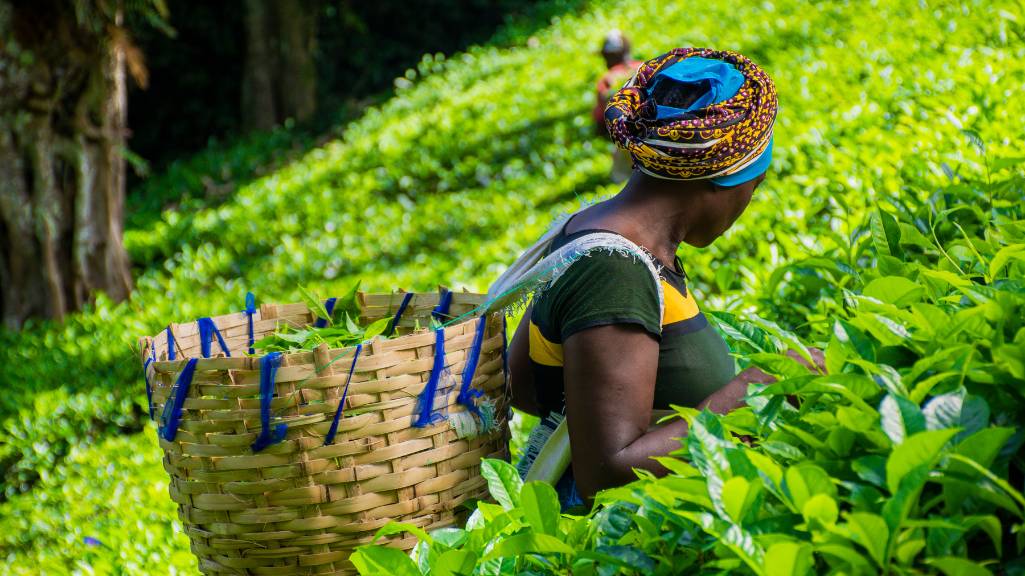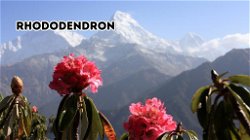Tea Cultivation: Conventional and Organic Farming Methods Explained
Alvish Asher
. 2 min read
Tea is a part of daily life. It is as simple as eating when hungry and drinking when thirsty. Tea production, cultivation of the tea plant, usually done in large commercial operations. The natural habitat of the tea plant is considered to be within the fan-shaped area between the Nagaland, Manipur, and Lushai hills along the Assam-Myanmar (Burma) frontier in the west. With the advancement of technology, various apps have emerged to aid tea producers in streamlining their operations, from managing plantations and monitoring growth conditions to optimizing harvesting schedules and facilitating efficient supply chain management.

History, Cultivation, and Conventional vs. Organic Farming Methods
Climate and soil
Tea is exacting in its climatic requirements. The temperature may vary from 16 to 320C and annual rainfall should be 125 to 150 cm, which is well distributed over 8-9 months in a year. The atmospheric humidity should be always around 80% during most of the time. Very dry atmosphere is not congenial for tea. It is grown in plains in North Eastern States but in South India, it is grown in hill ranges from 600 to 2200 m above M.S.L.Tea is a calcifuge crop requiring comparatively low amounts of calcium but high quantities of potassium and silicon.
Conventional tea farming
Conventional tea farming is the mode for tea farming that is commonly applied in industrial and large scale, contemporary cultivating contexts.
1. The tea that is available on the market in Japan is, if not by default, grown according to conventional farming methods, and thus it is this kind of tea that can be readily obtained at local supermarkets and prestigious tea vendors alike.
2. This way of farming does not eschew the use of chemical fertilizers and agrochemicals such as pesticides and herbicides, and applies them in correspondence to the requirements for the seasons and environmental circumstances.
Organic Tea Farming
Organic tea has a simple and traditional flavor which is probably the same as teas grown many years ago in ancient Japan. And organic tea more directly brings the antecedents in the flavor than non-organic tea. The antecedents are the features of breed, soil, climate, and efforts by the farmer.
Therefore the flavor of organic Japanese tea is quite affected by these efforts, climate and soil. To grow high grade and quality organic tea, it is required to meet some terms, which are
(1) extra time and effort,
(2) the range of temperature between day and night in the rolling hills,
(3) there are not so many places even in Japan which are perfect for farming high quality organic tea.
Organic tea farming in India
Keeping in view, the present day consumer taste and interest among health conscious people towards organic products, the Govt. of Uttarakhand decided to encourage organic tea cultivation in the state. The organic tea produced here has been evaluated by tea tasters in Kolkata. Recently, the director of Contemporary brokers (pvt. Ltd.) paid an official visit in the tea gardens and factories here and expressed interest over the tea produced and sought some quantity of teas at Kolkata auction through their catalogue on a regular basis.
Conclusion
In conclusion, tea is a beloved and widely consumed beverage with a rich history dating back centuries. Its global market value has been steadily increasing and is expected to continue to rise in the coming years. Tea production is a complex process that requires specific climatic conditions, soil types, and cultivation methods. Conventional farming methods are commonly used, but organic tea farming is becoming increasingly popular as consumers prioritize health and sustainability. With its cultural significance and diverse cultivation methods, tea remains a beverage that continues to captivate people all over the world.
More Stories from
A Glance into the Rich Tapestry of Indian History
This article provides a captivating overview of Indian history, spanning from the ancient Indus Valley Civilization to modern times.
The Indian Army: A Resilient Force Safeguarding the Nation
The Army remains steadfast in its commitment to safeguarding the nation's security and responding to diverse challenges.
The Enchanting Rhododendron: Himachal Pradesh's State Flower
Discover the captivating Rhododendron, the state flower of Himachal Pradesh, India. This vibrant evergreen shrub, native to the Himalayas, paints the landscape with breathtaking colors each spring.
Exploring the Uncharted: Speculative Insights into the World Beyond 2021
This article provides a brief overview of potential geopolitical shifts, technological advancements, environmental concerns, health challenges, economic developments.
Racial Justice and Inclusivity: Promoting Equality in Society
Explore the vital journey towards racial justice and inclusivity as we uncover the challenges faced by marginalized communities and the transformative power of inclusivity.











.png?width=40&aspect_ratio=1:1)

.png?width=40&aspect_ratio=1:1)